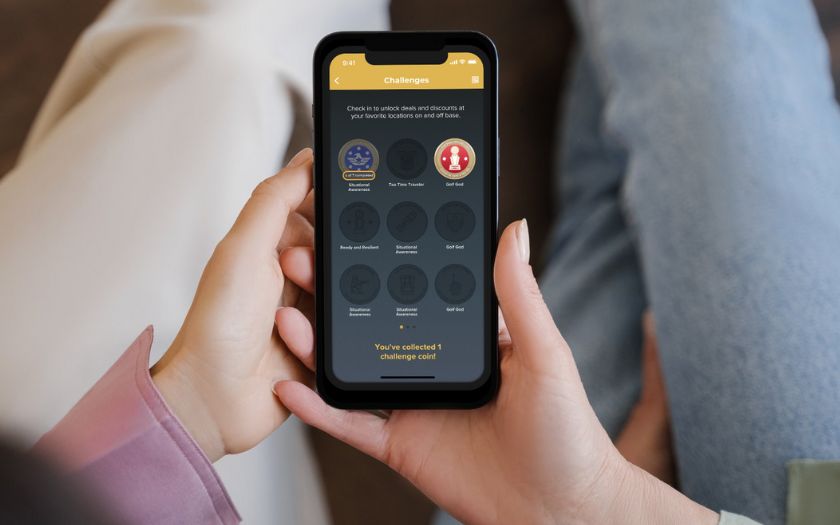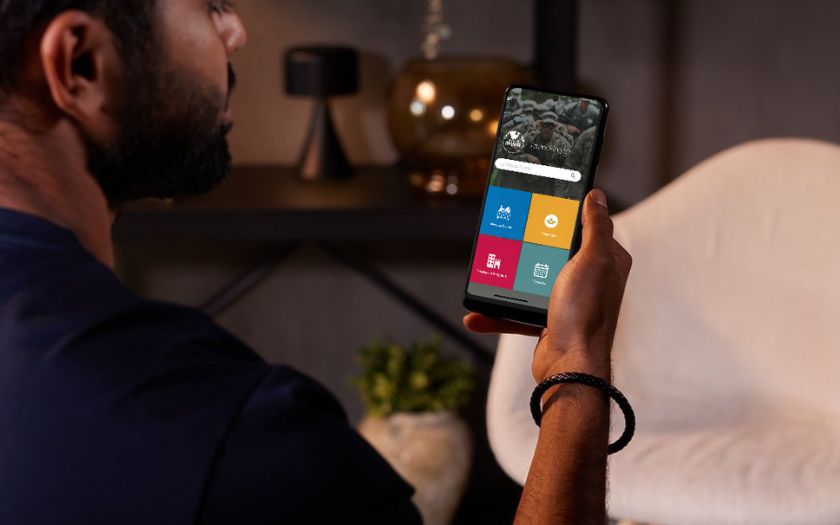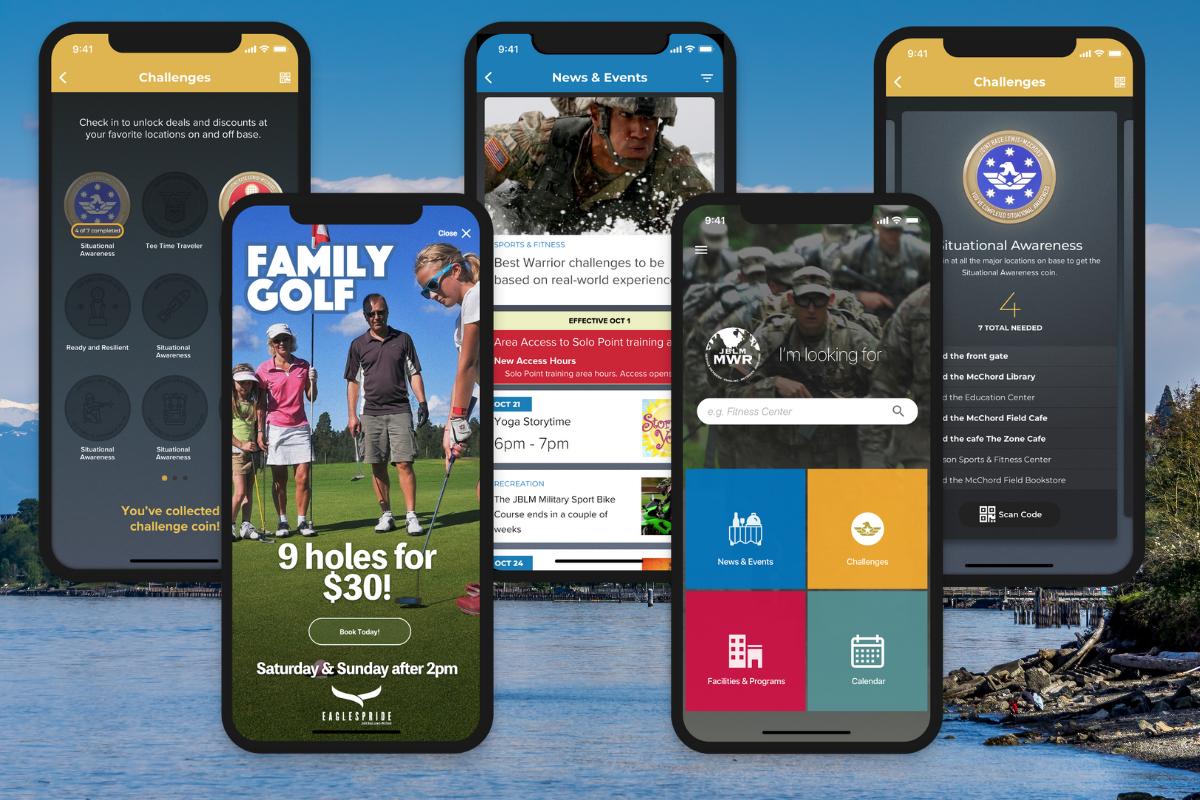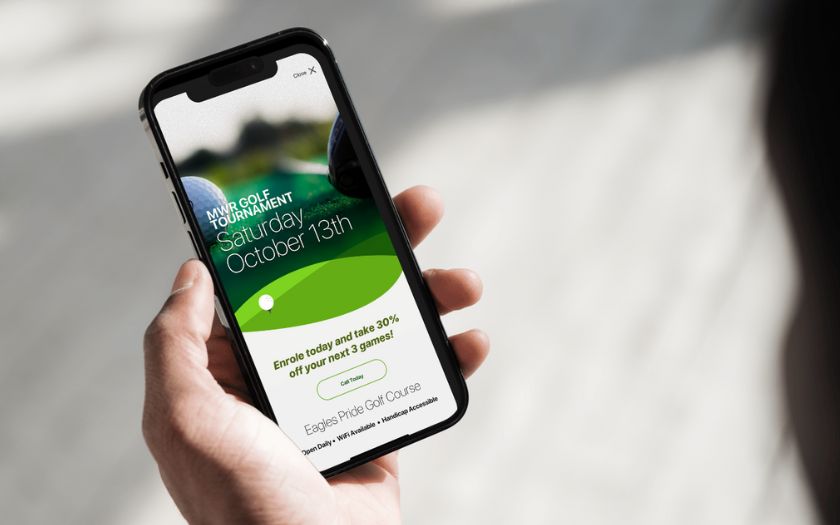JBLM 360 App
Client
Capabilities
Joint Base Lewis-McChord (JBLM) in Tacoma, Washington, is home to over 35,000 active-duty service members and their families. As one of the largest military installations in the United States, JBLM’s leadership recognized a recurring problem: service members, new arrivals, and local community members struggled to stay informed about the diverse resources, events, and services available on and off the base. The information was fragmented across multiple platforms, making it difficult to access and engage with important updates, resulting in low awareness and missed opportunities.
JBLM needed a comprehensive digital solution that could centralize this information while offering an engaging user experience. The solution had to be intuitive, mobile-first, and scalable, allowing for future expansion to other military bases.
Impact
Before the development of the JBLM 360 app, service members and their families struggled with fragmented and outdated information spread across multiple platforms and locations. Key challenges included:
-
Low Engagement and Awareness: Important events and resources went unnoticed due to inconsistent communication channels, leading to low participation in on-base activities and missed opportunities for service members to connect with community resources.
-
Disjointed Information Access: Vital details about facilities, services, and programs were difficult to find, causing frustration and inefficiency. Service members had to rely on outdated directories, poorly maintained websites, or word of mouth, leading to confusion and misinformation.
-
Poor Onboarding Experience: New arrivals often faced an overwhelming amount of scattered information during orientation. Without a centralized hub to guide them, many struggled to navigate both on-base and local resources, resulting in missed services and slower community integration.
-
Inefficient Communication: Garrison managers lacked an effective way to push critical updates or alerts to all personnel in real-time. This led to delays in important information reaching service members, impacting their ability to respond to emergencies, changes, or opportunities.
These issues highlighted the need for a cohesive, mobile-first solution that could centralize information, improve communication, and enhance overall engagement for the JBLM community.
Resolution
JBLM partnered with PortlandLabs to develop the JBLM 360 app—a native mobile application available for both iOS and Android. The app was designed to meet three primary objectives:
-
Centralized Information Access: The app integrates a directory of on-base facilities, services, and events, allowing users to quickly find essential resources, contact information, and directions. The app’s intuitive navigation and map integration make it easy for users to locate important sites both on and off the base.
-
Real-Time Communication and Engagement: The JBLM 360 app features live updates and a news feed, ensuring that service members are always aware of upcoming events, important announcements, and special activities. Push notifications enable garrison managers to broadcast critical alerts, making sure that information reaches the right people at the right time.
-
Gamification and Community Building: The app uses gamified challenges and rewards to encourage users to explore both the base and local businesses. This interactive approach not only improves engagement but also strengthens ties between the base and the surrounding community. For instance, a challenge involving a visit to a local golf course during the app’s beta test saw hundreds of users participating, driving traffic to the business.
The app’s scalable architecture also allows for future enhancements, such as unique branding for different garrisons, support for multiple garrisons within one platform, geofencing-based push notifications, and customizable user accounts.
Since its launch, the JBLM 360 app has become a vital tool for the base’s residents and service members. The app’s centralized platform has significantly improved communication and resource access, leading to higher engagement in both military and community events. The phased development approach ensures that the app continues to evolve based on user feedback, keeping it relevant and effective.



